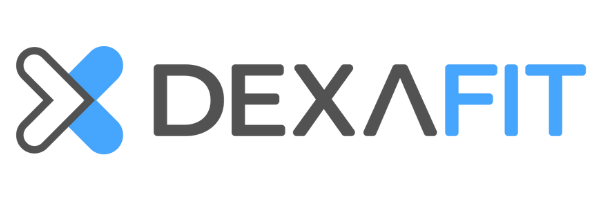Recorded health history information is critical for determining the effect of a diet or fitness change on various health parameters—without it, we wouldn’t be able to quantify any positive or negative progress that occurred since we made the change. Developments like full body health scans represent the future in health history standards: by revolutionizing the quality and quantity of trackable health data available, health professionals are better equipped to create highly efficient fitness plans tailored to meet individual goals and needs.
Health History Forms & Questionnaires
Health history forms and health history questionnaires represent classic methods of recording health history information. Normally, these forms rely solely on an individual’s memory of his or her health history: a health care provider supplies a form listing an array of symptoms and health conditions with instructions to check yes/no next to each item to indicate whether the individual has experienced it at any time in the past or present. Health history questionnaires often also include questions inquiring about any family history of some or all the listed conditions.
Depending on whether the health care provider specializes in a specific area, such as a dermatologist, the health history form may focus narrowly on conditions only pertaining to that specialty, such as dermatological conditions. Limiting the scope of the health history questionnaire has the potential to negatively impact the effectiveness of the provider’s treatment and recommendations—without comprehensive health history questions and a complete set of health history data, a provider may be unable to identify certain factors that are possibly limiting the progress being made with the current fitness protocol. Even more importantly, not all diet or workout regimens are safe or healthy for individuals with various health conditions such as diabetes or high blood pressure. If a health professional is unaware of such a condition, an individual may be prescribed treatment or diet and fitness protocol that may endanger their health.
These forms often ask for a subjective assessment of one or more areas too, such as assigning a numerical rating to perceived current general health or wellness, or a rating correlating to satisfaction with current body weight or diet habits. Questions aimed at gathering information about lifestyle choices, including exercise habits, tobacco and alcohol use, drug use, sexual activity, and caffeine intake are common and usually require a quantification following any “yes” answer, such as detailing how many alcoholic beverages are consumed in an average week given a “yes” for alcohol use.
What’s Wrong with Using Health History Forms?
There’s nothing wrong with using health history questionnaires as one of a group of tools used to gather health history data; rather, the problem lies with solely using these forms to gather that data. Why? Well, the reliability of the health history information is entirely dependent upon not only an ability to remember it but also an ability to remember it accurately. Additionally, there may be a dozen reasons why an individual is unable to provide accurate or complete information regarding the health history of family members. Health history records with these deficits clearly do not represent a complete health history sample.
Another major issue with health history questionnaires stems from their reliance upon individuals to answer honestly, which means health care providers may be basing recommendations on false information. For example, suppose an individual who is experiencing sleep disturbances has dishonestly answered “no” to caffeine intake. The provider will likely look for other explanations behind the sleep deprivation, rather than order a test specifically quantifying caffeine intake to determine whether the individual answered the questionnaire honestly. Ideally, everyone would answer all items on health history forms truthfully, but unfortunately, this just isn’t the case.
Further complicating matters, individuals often currently visit or have visited more than one health care provider in their past, yet health history forms are often only shared between providers upon request. If providers do not have access to data gathered by other professionals, they clearly don’t have access to an individual’s medical health lab test history, which limits the accuracy and efficiency of the provider’s care.
There’s also an issue with the subjective health ratings that are often included. While there isn’t anything inherently wrong with this type of information being included as part of an individual’s health history, providers must be very careful in the way these answers are interpreted. There’s nothing that indicates any definitive correlation between assessments like these and an individual’s actual health or fitness status. Perception certainly isn’t always reality, and a positive trend among answers over time may lead providers or individuals to falsely conclude that progress is being made.
Furthermore, many individuals are striving to meet strictly physical goals that are only attainable through unhealthy or dangerous tactics: they might give high satisfaction ratings in response to these questions once they’ve achieved those goals, but they’ve only truly succeeded in diminishing their fitness level. Obviously, in cases such as these, subjective assessments are not at all a reliable piece of health history data.
Electronic Health Records
Electronic health records (EHRs) are digital versions of paper health history forms and treatment information. The implementation of EHRs has greatly reduced or eliminated many of the issues experienced with hardcopy health history questionnaires and forms.
With EHRs, securely sharing health history and treatment information between providers is much more easily accomplished, which in turn allows providers access to a more thorough health history picture. For individuals being treated by multiple providers at once, EHRs allow efficient coordination of treatment across all providers since they’re both available instantly and updated in real time. This coordination among providers also translates to safer, more streamlined care: medical errors involving treatments and prescriptions that contradict one another are much less likely if providers are fully informed about the care that’s being provided elsewhere. Electronic health records also translate to cost savings for the individual, since they reduce the risk for duplicate testing procedures at multiple locations and paperwork costs for facilities.
However, while it’s true that EHRs have helped to improve upon gathering and tracking health history data, there are several other issues previously discussed which EHRs don’t directly address. Like hardcopy health history information questionnaires, much of the health history information recorded still relies strictly on the patient’s memory and honesty. Additionally, using EHRs doesn’t necessarily mean an individual’s health history is any more comprehensive than with traditional health history forms just because sharing health history information between providers is easier and faster. Only health professionals working for the same health system or employer would automatically have access to information previously gathered by other providers—outside providers would still need to manually compile records from other facilities by requesting electronic copies of EHRs.
The Future of Health History Information
The next generation of health history information methods is aimed at gathering a more inclusive set of health history data centered around clearly defined, trackable fitness and wellness parameters. Taking advantage of advancing technology is critical to realizing these goals: recent developments such as full body health scans are rapidly gaining in popularity, and rightfully so. Scans provide a wealth of health information, rather than focusing on any particular area, which both streamlines the data gathering process and provides a truly comprehensive set of health data. The same health parameters are also much more easily tracked over time, allowing health professionals to reliably evaluate an individual’s progress and make safe adjustments that will efficiently produce results.
Don't create bigger obstacles in your fitness journey by following fitness fads that don’t work, contact us now for expert consultation and start tracking your health history today!













